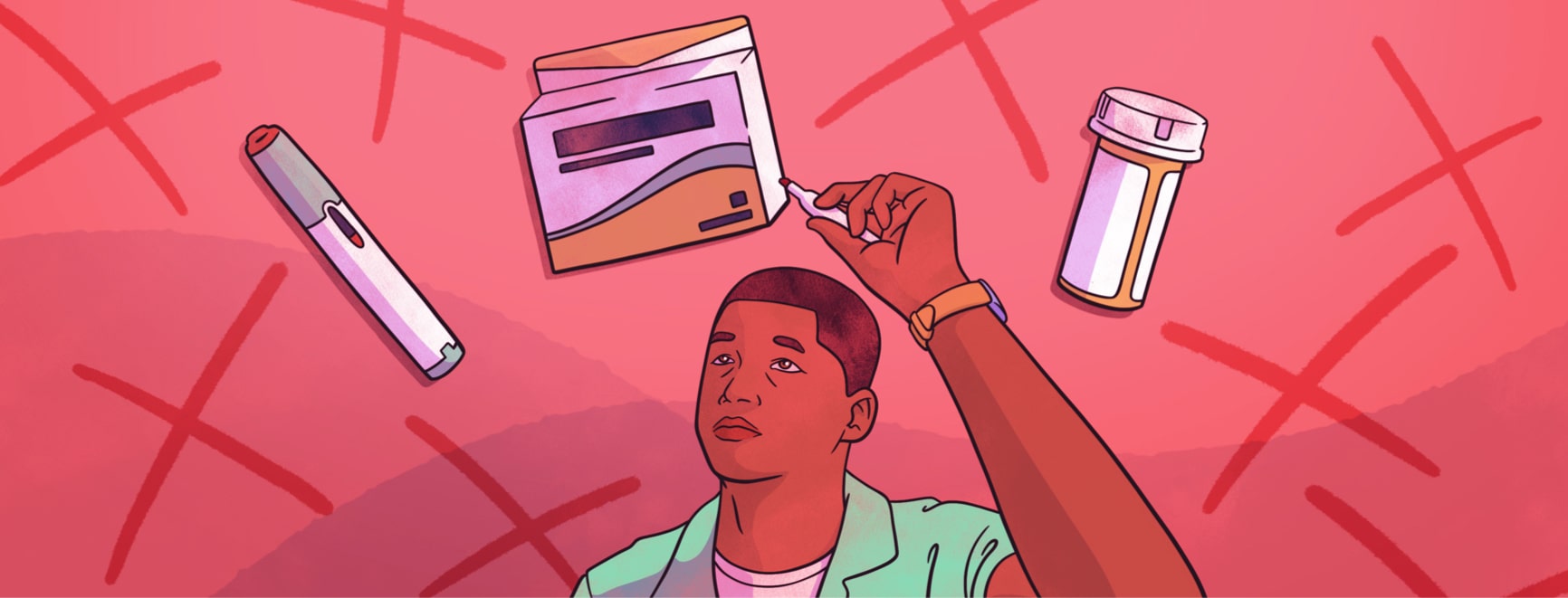When You Fail a Medicine... Again
Failing a medication is always a hard blow to deal with. When you first try a new drug, you think that this could finally be it. This medication can finally be the one to work and bring you into remission.
But you try it and it fails. It's devasting to go through.
Medications not working
Failing a medication is like experiencing a death. A part of you dies. A chunk of hope gets ripped out of your hands and you are left empty, sad, unsure – wondering if you will ever be able to function like a healthy human ever again.
You can also feel taken advantage of by your doctor. After failing 2, 3, or more medications, you wonder if your doctor cares for your well-being at all, or if he/she is just throwing random medications at you without any proper individualized attention.
You begin to question the process. You begin to feel like maybe these doctors don't really understand my particular body and this entire journey has been difficult simply because my doctor is not taking the proper steps. Or is it my body? Perhaps my body is the one that doesn't respond to these medications and I happen to be a special case.
Questioning if my doctors knew how to treat my Crohn's
After years and years of failing medication, I started to really question the process. Wondering if my gastroenterologist was making well-calculated decisions for my body or rather just choosing medications based on popularity.
I also questioned my own body. Perhaps I am the exception to the rule. Perhaps medications just don't work for me?
Oh, the circles and circles I would find my mind going in. It was maddening. Sadly, it got to the point where I became rebellious. I just wanted to stop taking all medication simply because it wasn't working.
Featured Forum
View all responsesWhat's the point of medication that doesn't work?
Why take something when I'm not getting results? Why inject myself when it's offering zero relief for symptoms? Why take hours out of my day to drive to the infusion center and sit in a chair for hours, wasting time and energy, when it does no good to my body?
Trust me. If you have any of these thoughts, you aren't alone. Finding the right medication takes time. For me it took about 8 years to finally land on a medication that offers symptom relief and that allows me to live a normal life, day to day.
When I finally found "the one"
To give you a glimmer of hope if you are still struggling to find the right medication, I did finally find mine. I was put on JAK inhibitor and I immediately noticed a difference within days. My pain subsided. My bowel movements began to improve. My energy started to come back.
It has been about 3 years since being on it. I am still improving, and most importantly, I feel the best I've ever felt since being diagnosed in 2011. I feel like myself again.
Different categories of medication
A very important note I'd like to share is it is so important to be your own advocate. Do research. Learn that there are different categories of medicine to treat IBD. For me personally, the category of JAK inhibitor is what my body responds to. It just so happens that this category was the last for my doctors to try.
But be proactive. Learn what category your medication is in, and if that doesn't work, ask to switch to a different category rather than trying a different brand within the same category. For example, if you don't respond well to infliximab, that is a TNF alpha-blocker. Tell your doctor you do not want to try another TNF alpha-blocker and wish to try, for example, a JAK inhibitor.
Being proactive with Crohn's and colitis treatment
Your doctor will guide you with what is best for your body, but being proactive and understanding medications yourself is a very smart thing to do, and I wish I would have done it sooner.
Do you know what category your current medication falls in? Has your doctor repeated medicines in the same category? These are important questions to consider.

Join the conversation